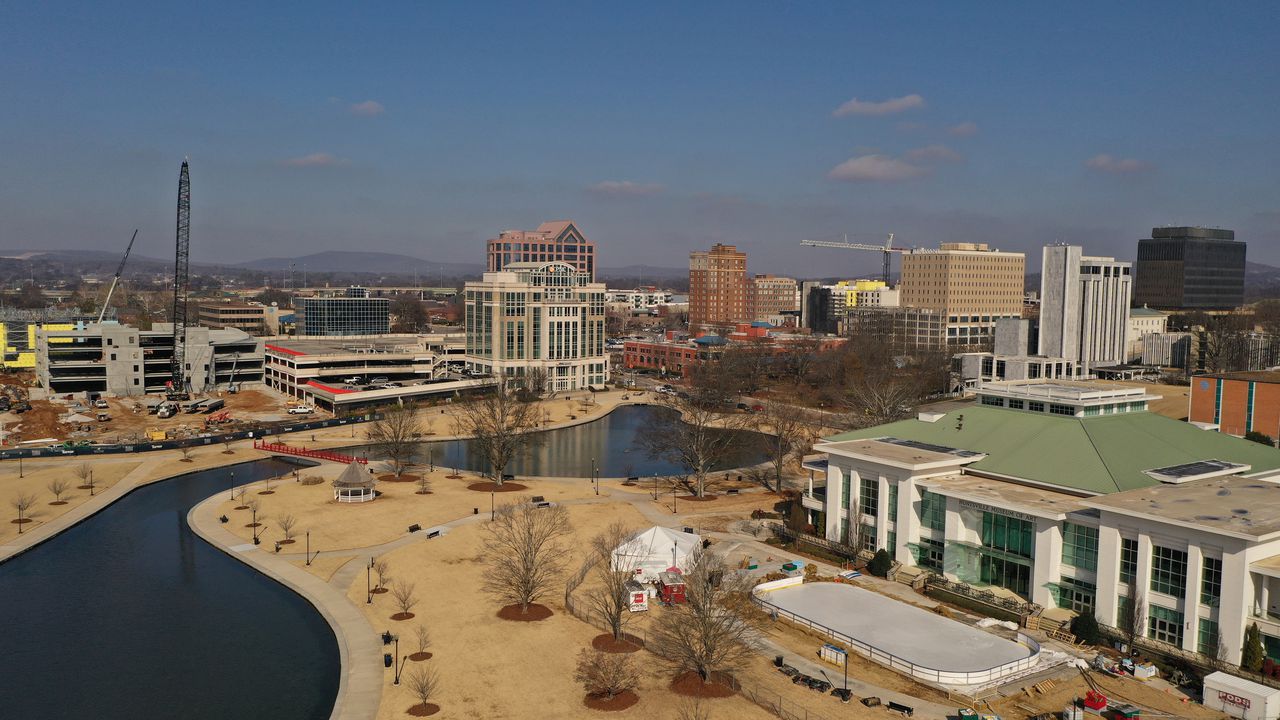Birmingham is starving itself to death
This is an opinion column.
I’m sitting here in Birmingham, Alabama, thinking “Dang, you can’t go online these days without hearing bad news.”
And by bad news I mean if I see another story about how flippin’ great Huntsville is, I’m gonna yack all over my “Take that s#$& Back to Hoover” T-shirt.
Not because I wish ill of Huntsville. I used to live there, for Pete’s sake. I’m happy for it, in the same way I pretended to be “happy” for Auburn back when that team had success. It hurt, but I felt obliged.
I joked the other day – in the face of all that federally funded north Alabama success – that if Huntsville is to be taken seriously it needs to put out an APB for its skyline, and prosecute whoever made off with it.
“Pshaw,” a Birmingham booster muttered. “Huntsville is half the city Birmingham is… except for population.”
Except for population. And there’s the rub.
I’m not really mad at Huntsville. Haters gonna hate is all. I’m just frustrated at Birmingham – and when I say Birmingham I mean the 1.1 million people in the metro who seem like neighbors but are siloed by invisible lines – because those divisions keep us from having nicer things.
The Birmingham Metro Area – 89 municipalities and 23 public school districts – is a protect-your-own-and-eff-the-rest set of communities, many of which broke away from Birmingham in white flight and formed school systems as a direct result of desegregation. Division has been an albatross.
But that’s all right, right? Everybody thinks they’re doing fine. Mountain Brook is fine and Hoover is fine and Birmingham is fine and everything is fine. Just fine.
Fine is … fine.
Except, according to the non-partisan Public Affairs Research Council of Alabama’s award-winning report on regional cooperation a few years ago, it’s not. Fragmentation has not only led to a decline in Birmingham’s prominence, but is a drag on metropolitan growth.
Seems like it. Average employment across the Birmingham region has been stagnant this whole century, and the same is true of income growth and poverty rates. It’s true of splintered regions across the country.
“In cities where government is fragmented, growth is slower, and social and economic problems are more concentrated,” the PARCA report said. “The negative effects of fragmentation weigh not only on the center city but also on the metropolitan area as a whole. The fortunes of the central city and its suburbs are interlocked.”
It’s like that old Aesop’s fable where the parts of the body got mad because the stomach was getting all the grub. The hands stopped forking, the mouth stopped chewing, and the throat went on a swallowing strike to teach that belly a lesson. Pretty soon the whole body began to starve.
Huntsville skyline at Big Springs Park. Huntsville area photos from January 2021. (Joe Songer | [email protected]). Joe Songer | [email protected]Joe Songer | [email protected]
The Birmingham metro is slowly starving itself. To spite its gut.
Perhaps it always worried about its differences more than it valued its possibilities. Consolidation efforts twice failed in Birmingham in the ‘60s and ‘70s. The metro had the chance to come together like Nashville, or Jacksonville, but chose to scatter to the wind instead.
I had long hoped Birmingham would be jealous enough to come to its senses when threatened, to find a way to cooperate when Huntsville became Alabama’s real magic city. After all, Louisville was motivated, at least in part, to consolidate government in 2003 after Lexington passed it in population.
But divided we continue to stand, and watch others pass by.
Some say the mayors of different area cities are communicating more – and council members, too. There is more talk of shared services than there used to be, and every five years or so another task force forms to find elusive “regional cooperation.” But little comes of it, and in the end the legislative delegation, which has more control than all those others, just sits divided and fiddles fat and happy.
While we, the people of the Birmingham Metro Area, face starvation.
With 89 tiny kingdoms and 89 castles and courts, we duplicate services, compete against each other instead of the world, build a Tale of 89 Cities, a community of haves and have nots, and watch places like Huntsville zoom by.
It’s time to wake up, Birmingham. Again. It’s time to wake up and eat.
John Archibald is a Pulitzer Prize-winning columnist for AL.com.
